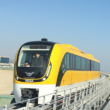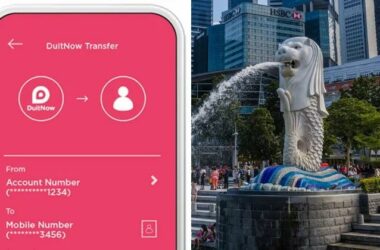Malaysia stands at 41 as overall the best country to work remotely, according to new research by the cybersecurity company NordLayer.
Last year, the company created the Global Remote Work Index (GRWI), which reveals the best and worst countries to work remotely in terms of four different criteria: cyber safety, economic safety, digital and physical infrastructure, and social safety.
This year, NordLayer evaluated 108 countries compared to 66 last year. Here are the top 10 countries that are best for remote work according to this year’s data:
1. Denmark
2. The Netherlands
3. Germany
4. Spain
5. Sweden
6. Portugal
7. Estonia
8. Lithuania
9. Ireland
10. Slovakia
The full list is available here: https://nordlayer.com/global-remote-work-index/
The index was compiled by assessing and comparing countries using four index dimensions. Under each dimension are various attributes (sub-dimensions) that, combined, help evaluate general remote-work attractiveness:
1. Cyber safety — infrastructure, response capacity, and legal measures.
2. Economic safety — tourism attractiveness, English language proficiency, cost of living, and healthcare.
3. Digital and physical infrastructure — internet quality and affordability, e-infrastructure, e-government, and physical infrastructure.
4. Social safety — personal rights, inclusiveness, and safety.
How does Malaysia rank?
Malaysia ranks at 41 in the general GRWI list out of 108 countries studied. In particular, its tourism attractiveness (10), with wonderful weather conditions during the year, makes it a very appealing remote work destination. Other great aspects are Malaysia’s cybersecurity infrastructure (7) and legal measures (3).
However, despite having a very high cyber safety rank (22), Malaysia still has a lot of room for improvement until it becomes a perfect work destination. Economic safety-wise, Malaysia still needs a lot of growth, ranking 33 in the global index overall.
It also needs to improve the country’s social safety (72). Malaysia lags behind other countries significantly in terms of inclusiveness (65), personal rights (59), and especially — the safety index (75). The country’s healthcare system is also very poor compared to other countries (69).
How does Malaysia look compared to other countries in the region?
Compared to other countries in a similar region, Malaysia ranks pretty highly. The only country ranking higher was Singapore (28). Malaysia ranks higher than Thailand, which is 49, and Indonesia, which is 68.
Singapore ranked higher because of its world-leading digital and physical infrastructure and e-governance. It also has a much more welcoming atmosphere for nomads because of its high English proficiency (3).
However, Malaysia ranked much higher than Singapore in the economic safety score (33), mostly because of its lower cost of living compared to Singapore (96). Singapore was also lower in cyber safety ranking (25) because of the country’s less strong legal system regarding cybercrime (11).
Unsurprisingly, all four countries (Singapore, Malaysia, Indonesia, and Thailand) ranked very highly in tourism attractiveness. However, Indonesia is sometimes a more appealing destination for nomads looking for cheaper remote work destinations because it has the lowest cost of living in the region.
Talking about Asia in general, South Korea (17), Japan (at 22, one of the world’s top tourist destinations), and Singapore (at 28, a world leader in e-governance and physical infrastructure) are clear leaders in Asia in terms of overall GRWI ranking, with China following next, ranked at 39.
Practice good cybersecurity habits
“Even though some of the big tech companies recently brought their employees back to the office or introduced a hybrid work model, remote work is here to stay. It’s not just a trend — it is a fundamental shift in how we approach productivity and work-life balance. Embracing remote work empowers our teams to harness their full potential, regardless of geographical boundaries,” notes Donatas Tamelis, managing director at NordLayer.
For people interested in remote work, Tamelis recommends practicing several good cybersecurity practices:
● Always use a virtual private network (VPN). A VPN encrypts your internet connection and helps protect your personal information from prying eyes. It is especially crucial when connecting to public Wi-Fi networks.
● Also, ensure that all your devices, including smartphones, tablets, and laptops, have the latest software updates installed. These updates often include security patches that can help protect against known vulnerabilities.
● Be cautious with public Wi-Fi and avoid accessing sensitive information such as online banking or entering passwords on public Wi-Fi networks unless you are using a VPN. Hackers can easily intercept data on unsecured networks.
● Enable two-factor authentication whenever possible for your email accounts, social media profiles, and other online services you use while traveling. This adds an extra layer of security by requiring a second form of verification during login.
● Use strong and unique passwords. Create strong passwords for each of your online accounts and avoid using the same password across multiple platforms. Consider using a password manager like NordPass to securely store and generate complex passwords.
“In the age of remote work, cybersecurity is not just an option. It’s a critical necessity to safeguard our data and protect our organization from evolving cyber threats. Working remotely opens up new opportunities, but it also exposes us to potential security risks. Cybersecurity vigilance is our first line of defense,” says Tamelis from NordLayer.










